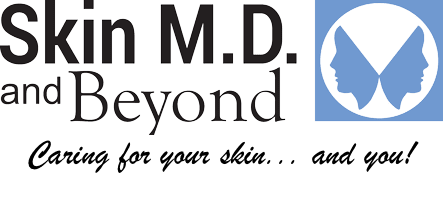
Not Getting Enough Sleep?
For many, sleep is an elusive luxury. Why? Because, while we all agree that getting a good night’s sleep can help us feel great the next day! – many can never hit their sweet spot of how much sleep they need. Whether you’re a night owl or morning person, we all have different routines that can affect our sleep patterns. Adequate sleep is important for a healthy lifestyle as it not only helps the body and brain but also helps slow down the aging process.With sleep taking up about one third of every day, it’s a pretty important aspect of life and health.
What are the Major Benefits of Sleep?
GOOD BRAIN HEALTH: Healthy sleep will lead to proper memory function and enhanced motivation. Studies have also shown that optimal sleep will give you the ability togain new insight into complex problems by 50%. While, poor sleep is associated with brain fog and mood problems when we are young and accelerated cognitive decline when we are older.
STRESS REGULATION: When you sleep well, you will reduce your mental stress. Losing just a couple hours of sleep at night makes you angrier, especially in frustrating situations, according to new Iowa State University research. It was also reported in the Journal of Experimental Psychology that Despite typical tendencies to get somewhat used to irritating conditions — an uncomfortable shirt or a barking dog — sleep-restricted individuals actually, showed a trend toward increased anger and distress, essentially reversing their ability to adapt to frustrating conditions over time.
CARDIOMETABOLIC : Science has shown that sleep is critical for your brain cells to detoxify
PROTECTION: metabolic waste, mop up and destroy dysfunctional cells, and balance neurotransmitters that control your heart function, sugar control (diabetes) and all the hormones in your body.
GENERAL VITALITY: While you sleep, your body encourages healthy cell division (helps revent cancer) and allows your muscles to recover from the day. Sleep has been identified as an important factor contributing to optimal athletic performance. The quality and amount of sleep athletes get is often the key to winning. REM sleep in particular provides energy to both the brain and body.
What are the Hidden Causes of Insomnia?
- Not Prioritizing Quality Sleep!
- LED Light Exposure
- Sleeping in the Wrong Environment
- Being Overweight
- Irregular Sleep Schedule
- Bad Nutrition and Nutrient Deficiencies
- Leaky Gut
- Hormone Imbalances
- Chronic Pain and Inflammation
- Low GABA Levels
How Can Tru Age Wellness Center Help You?
Our practitioners will introduce you to the functional medicine approach to health and provide the necessary laboratory testing, health information and dietary guidance needed to achieve your optimal wellness. We will advocate a personalized approach rooted in the practice of long-lasting vitality and longevity.
- Eat your way to Better Health. By focusing on the inflammatory and healing properties of food, we can reset your sleep cycle. With advanced testing, we will guide you to what foods you should be eating, and which supplements you need to make sure your body get exactly what it needs to have a good night sleep.
- Healthy Hormones Embodies your Well-being. We will navigate with you the complexities of hormones and address all aspects of their function and how they affect your sleep. By balancingall hormones in the body (not just estrogen, progesterone and testosterone) you can take charge of your health and get the best sleep possible.
- Brain Health Upgrades your Biological Systems. Functional medicine provides a method for re-balancing the brain’s underlying physiological systems and addressing lifestyle issues that contribute to brain fog, memory loss and sleep disturbances. By understanding the terrain of chronic brain stress and allowing your biology’s inherent healing forces to be unleashed, insomnia and other and chronic illness can be resolved.
If you have a hard time sleeping and have tried counting sheep countless of times, then you may like to begin your personal Sleep Hygiene Management Program at Tru Age Wellness Centerand address any of the factors above Please consider clicking HERE to request our Initial Health & Medical Questionnaire.
We welcome you to call Tru Age Wellness center today to start the testing process and discover what is driving your health issues and to get on the road to recovery!
Your in-office consultation begins with a comprehensive history & lifestyle evaluation to determine your specific metabolism, the status of your hormone levels and the overall functionality of your physiology. We will work with you to identify any imbalances you may have and develop an individualized treatment plan. Treatment plans may include behavior and lifestyle changes, nutraceuticals, therapeutic nutrition plans, stress management techniques, health coaching, and/or advanced diagnostic testing.
Our program may also include functional laboratory tests for brain and body aging, metabolic errors, genetic markers, traditional risk factors, nutritional deficiencies, food allergies, heavy metal toxicity, and structural integrity of your muscles and joints.
